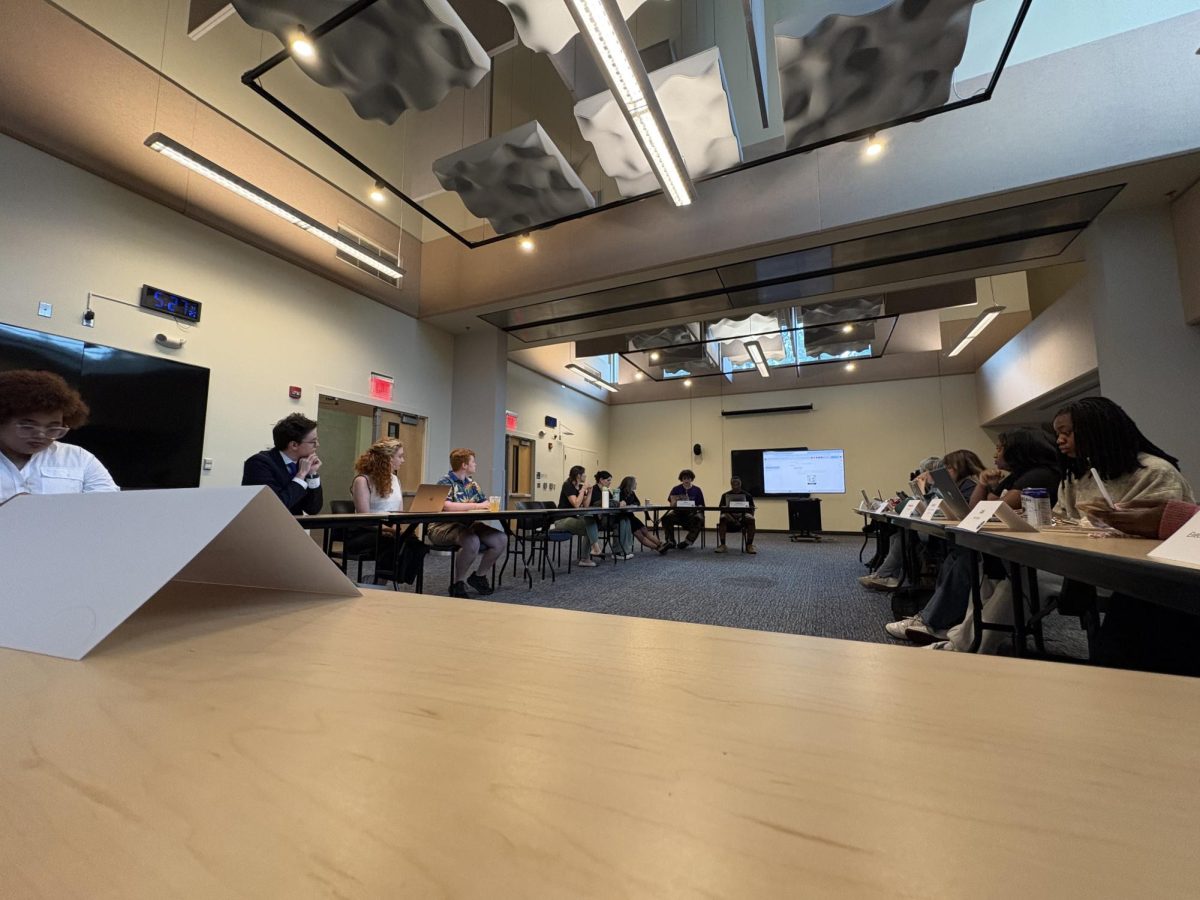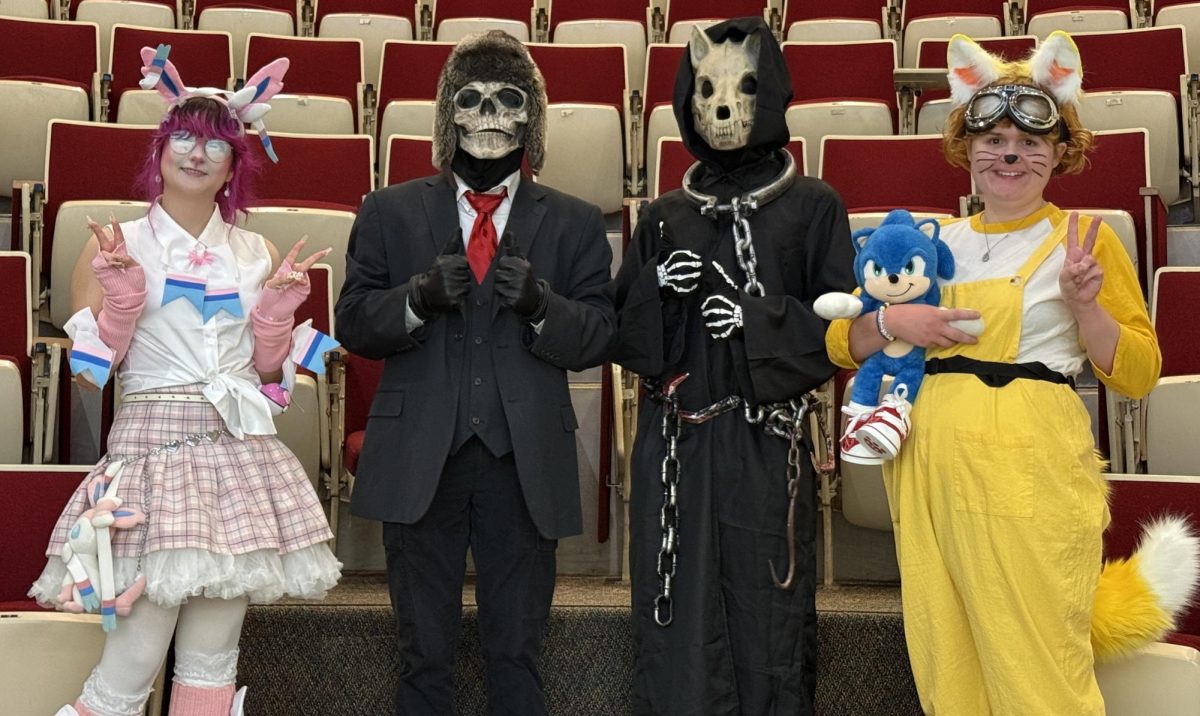University of North Carolina at Asheville professors argue white supremacy is the root cause of gun violence in the United States.
“Guns don’t kill people. People kill people. That is trite and not helpful. Yes you are right, like taking away guns is not going to stop things but it can be harm reduction. Why do people want to kill people? People kill people. Sure. Let’s really interrogate that,” said Blu Buchanan, a professor of sociology at UNCA.
Buchanan teaches a race, class and gender under fascism course this semester at UNCA, touching on topics like American fascism and gender ideals in society.
“Every time there is a school shooter, particularly if it’s a white dude, what do we end up seeing? Oh, he was lonely. He was depressed and mentally ill. He was suffering. Whether the person has a disability or not, the thing encouraging the person to go out and shoot a bunch of people is not his disability. It is about things like entitlement, etcetera,” Buchanan said.
According to Jesper Dammeyer, a psychology professor from the University of Copenhagen, and Madeleine Chapman, a psychology professor from the University of Westminster, individuals with disabilities display higher levels of violence than those who do not have a disability.
“Disability doesn’t make one more violent. Because white supremacy and things like toxic masculinity are normalized in our society, pretending as if this person has a disability is a way of distancing society from its product, which are things like school shootings,” Buchanan said.
According to Thomas T. Cullen, a Trump administration United States Department of Justice official, in 2019, white supremacy is one of the biggest domestic security threats in the United States, citing killings by groups associated with far-right extremists rose exponentially in past years.
“As a sociologist looking at violence,” Buchanan said. “Police are rooted in white supremacy and toxic masculinity. The same thing the active shooters are by and large also rooted in. Are we really asking one branch of the tree to somehow stop the other branch of the same tree?”
Buchanan said they don’t see police as having a mandate to intervene in gun violence because it defends the officer’s justifications for getting new weapons, expanding their power and duty to supposedly protect the people.
“The police are an extension of the people, and therefore, those regulations should apply to them,” said Carwyn Schumann, a 20-year-old AB tech student.
Schumann said they support the ownership of handguns for self and home defense but, outside of those purposes, think the American population has far too much access to firearms.
“At points in recent history, America has been the highest in suicide by gun. I think this is the clearest example of why some people shouldn’t have guns,” Schumann said.
Schumann said owning a gun is an integral part of culture in the U.S.
“Men are encouraged to own guns and have a gun to protect your wife, protect the kids. It is very much fabricated. If you put a gun in the hands of every man you know. You know, men have a lot of issues with mental health they don’t talk about, and there is a clear outcome from that,” Schumann said.
Buchanan said suicides are gendered, leaving men significantly more likely to use a gun in suicide attempts. They said in studies about notes left by those who have committed suicide women are more likely to not want to bother anyone with their death.
“Men were much more likely to describe doing this as about the visual and emotional impact. They want to make you feel bad. It is much more often men use guns, which are a messy form of suicide, to essentially be like, I felt invisible. You are going to have to deal with me now,” Buchanan said.
According to the Institute for Strategic Dialogue, the “manosphere” is an umbrella term referring to anti-feminist communities online, spanning from groups like misogynistic men’s rights activists to involuntary celibates.
“In these circles, women aren’t people. They are objects to signal to other men. Where in the ‘manosphere’, where does respect come from? Where does validation come from,” Buchanan said.
Diamond Forde, an author, award-winning poet and literature professor at UNCA, said there is a toxic masculinity culture shaped around gun culture, dividing women from gun ownership.
“While women are expected to be submissive and subservient and to have those qualities in mind, It gets even worse when we think about gun ownership in terms of race, black women are even further divorced from equal access to supposedly gun protection and safety. As a black woman, regardless if I have an open carry license or not, I still am at risk of being perceived as a threat and violent just by owning a gun,” Forde said.
According to Everytown, an organization committed to ending gun violence, misogyny and far-right extremism overlap in online forums dedicated to men’s rights, building radical aversion toward women and condoning gun violence.
“Think about, for instance, conversations about vegan and vegetarianism. Think about how much masculinity is tied to meat consumption. It seems silly and illogical, but this is what I mean about the pervasiveness of white supremacy. Even the food we choose to put into our bodies, the influence is there,” Forde said.
Buchanan said their view of the world moving forward is community-based, feminist, care and accountability-oriented.
“The world may be on fire, but I also think we have the flexibility and the capability to do incredible things,” Buchanan said. “Abolition matters, and we have to do the work of creating new relationships and creating ways of being present for one another.”



















